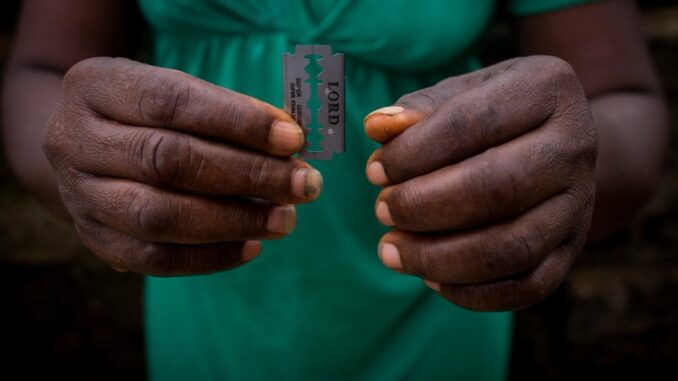
Gambian lawmakers convened to discuss the potential reversal of the ban on female genital mutilation (FGM) despite increasing efforts by activists to eradicate the practice. Instituted in 2015, the prohibition imposed severe penalties, including fines and imprisonment, for those involved in FGM procedures. However, FGM cases have been on the rise in recent years despite activist campaigns.
Lawmaker Almameh Gibba presented a bill for repeal earlier in the month, contending that the ban infringed upon citizens’ rights to practice their cultural and religious beliefs, particularly in the Gambia, where Islam is the predominant religion. If ratified, Gambia would become the first country to revoke an FGM ban. After thorough discussions, lawmakers voted 42 to four to refer the bill to a parliamentary committee for further review, a process expected to last at least three months.
Recent data from the United Nations Children’s Fund revealed a global increase in the number of women and girls subjected to FGM, rising from 200 million to 230 million over the past eight years. The majority of cases were concentrated in African countries, followed by Asia and the Middle East. While advocacy group Equality Now underscored the importance of legal prohibitions in combating FGM, it noted that more than half of the countries where FGM is practiced already have legislation against it.
Despite convictions in August for individuals conducting FGM, resistance to the ban has been notable, particularly since President Adama Barrow assumed office in 2017. The Supreme Islamic Council in Gambia has emphasized the religious significance of the practice. While some parliamentarians have expressed support for the bill, activists remain vigilant, recognizing the uphill battle they face. Senior researchers, like Michèle Eken of Amnesty International, warn that repealing the ban on FGM could set a dangerous precedent for women’s rights, not only in Gambia but also across the region.
